US Foreign Policy on Syria / Iraq in one GIF
Anti War.....
 Iran views ISIS as a major threat, and the group is actively fighting wars against two of their key allies, Iraq and Syria, and forming a nation out of those territories quite successfully. As ISIS gets closer to the Iranian border, the nation is more willing to work with any possible allies in countering the Islamists’ expansion.
Iran views ISIS as a major threat, and the group is actively fighting wars against two of their key allies, Iraq and Syria, and forming a nation out of those territories quite successfully. As ISIS gets closer to the Iranian border, the nation is more willing to work with any possible allies in countering the Islamists’ expansion.
 Today, Obama announced the acquisition of a number of NATO members as allies for that conflict, and aides indicated that there will be many more diplomatic efforts to secure more and more across the region.
Today, Obama announced the acquisition of a number of NATO members as allies for that conflict, and aides indicated that there will be many more diplomatic efforts to secure more and more across the region.
 Secretary of State John Kerry was pushing hard for backing for the coalition, dubbing ISIS a “ambitious, avowed, genocidal, territorial-grabbing, caliphate-desiring quasi-state with an irregular army” that had to be totally destroyed militarily.
Secretary of State John Kerry was pushing hard for backing for the coalition, dubbing ISIS a “ambitious, avowed, genocidal, territorial-grabbing, caliphate-desiring quasi-state with an irregular army” that had to be totally destroyed militarily.
http://mebriefing.com/?p=1006
http://mebriefing.com/?p=1007
Retweeted by fred walton
That cat wiggle
Anti War.....
Iran Offers US Aid in Fighting ISIS; US Rejects It
US Rules Out Coordination, Information Sharing With Iran
by Jason Ditz, September 05, 2014
The Iranian government made a huge move toward rapprochement today, with Supreme Leader Ayatollah Ali Khamenei saying that he approved of cooperation with the United States in fighting ISIS, and that he had already authorized the Iranian military to coordinate with the US, as well as Iraqi and Kurdish forces in the fight.
 Iran views ISIS as a major threat, and the group is actively fighting wars against two of their key allies, Iraq and Syria, and forming a nation out of those territories quite successfully. As ISIS gets closer to the Iranian border, the nation is more willing to work with any possible allies in countering the Islamists’ expansion.
Iran views ISIS as a major threat, and the group is actively fighting wars against two of their key allies, Iraq and Syria, and forming a nation out of those territories quite successfully. As ISIS gets closer to the Iranian border, the nation is more willing to work with any possible allies in countering the Islamists’ expansion.
Offers for rapprochement are rare, but the US reaction is common: outright rejection. The State Department insisted that the US was neither going to do any coordination with Iran, nor even share information on their operations.
The US has made it clear they want to insinuate themselves into the ISIS war in a big way, and assemble a massive “coalition of the willing” for the war, though they likewise have been unwilling to accept the most likely such allies, Iran and Syria, because of a longstanding policy of hostility toward those nations.
Long War: Obama’s ISIS Strategy Will Mean Years of Steady Escalation
Plans Diplomacy to Amass Allies While Slowly Building Up Conflict
by Jason Ditz, September 05, 2014
Last week, President Obama admitted to not having a strategy for victory over ISIS, and that remains the case. Yet at today’s NATO summit, he laid out what amounts to a strategy for ever increasing escalation of the conflict.
 Today, Obama announced the acquisition of a number of NATO members as allies for that conflict, and aides indicated that there will be many more diplomatic efforts to secure more and more across the region.
Today, Obama announced the acquisition of a number of NATO members as allies for that conflict, and aides indicated that there will be many more diplomatic efforts to secure more and more across the region.
The long-term diplomatic effort, along with the lack of any serious strategy that could conceivably “win” the war, means that the weeks of steady escalation we’ve already seen of the war are going to be continued over the very long term.
The plan to build a “moderate” rebel alternative to ISIS in Syria, which the US has been trying, and failing, to pull off for years, is going to be pushed on for years longer, while the US builds up its involvement in the war on the Iraqi side, and eventually gives up on the futile effort to manufacture a pro-US Syria faction and expands the war outright into Syria.
The goals of the war remain nebulous, though in recent days the president and other administration officials have talked up the outright destruction of ISIS as a key part of the conflict.
So far, everything the US has done in the war has actually run contrary to that goal, as the US involvement and repeated escalations have simply added to ISIS’ profile and allowed it to recruit in ways unimaginable before.
The lack of a cohesive strategy for the war itself, and the focus on a quasi-strategy of escalation, means not only many years of war, but likely myriad additional US missteps that are playing right into the ISIS leadership’s hands.
US Assembles ‘Coalition’ Against ISIS
Cameron: No Military Requests as Part of Coalition Talks
by Jason Ditz, September 05, 2014
The Obama Administration has made much of its attempts to assemble a new “coalition of the willing” for its latest war in Iraq, and sought to claim a major victory on that front today announcing it had organized a campaign including Britain, France, Australia, Canada, Germany, Turkey, Italy, Poland, and Denmark against ISIS.
 Secretary of State John Kerry was pushing hard for backing for the coalition, dubbing ISIS a “ambitious, avowed, genocidal, territorial-grabbing, caliphate-desiring quasi-state with an irregular army” that had to be totally destroyed militarily.
Secretary of State John Kerry was pushing hard for backing for the coalition, dubbing ISIS a “ambitious, avowed, genocidal, territorial-grabbing, caliphate-desiring quasi-state with an irregular army” that had to be totally destroyed militarily.
Yet it’s not clear at all what officials from those countries in the new coalition are actually signing on for, and British Prime Minister David Cameron insisted no military requests have been made of any coalition members with respect to ISIS.
Officials say that in addition to the NATO members, the US is hoping to cobble together a collection of Sunni Arab nations to join the war, a difficult task since the war is taking place mostly to save Shi’ite Arab nations like Syria and Iraq from further ISIS expansion.
Jabhat Al Nusrah Fights for Survival
Egypt is spearheading an effort to reach an end to the Syrian civil war so that all efforts can be focused on fighting the Islamic radicals in both Syria and Iraq. Egyptian President Abdul Fatah Al Sissi discussed this intent with Russia’s president Vladimir Putin during their last meeting in Moscow in August. Furthermore, the Egyptian effort is coordinated with the Gulf States, Algeria and Oman. Early in September, Cairo will submit a formal proposal of its initiative to the Arab League, and it is expected that the League will form a committee to supervise the effort, which is based on intensive negotiations between the Syrian regime and the moderate opposition.
The Egyptian effort was also a subject on the agenda during the visit of Hossein Amir Abdollahian, Iran’s Deputy Foreign Minister, to Saudi Arabia on August 24-25, where the Saudis notified the Iranian official of the content of the Egyptian initiative. Efforts to galvanize an effective force to confront the Islamic State (IS) are underway.
But all the while, IS forces are preparing to take control of the entirety of Dair Al Zour province in Syria after its success in controlling the whole of Al Reqa province. Al Assad’s regime forces were slaughtered in Reqa, and the competition rebel forces of Jabhet Al Nusrah (JAL) either fled their areas or defected to IS.
In fact, JAL which vowed allegiance to Al Qaeda’s Ayman Al Zawahery, seems to be facing serious troubles. JAL’s “Emir,” Abu Mohammed Al Golani, promised his followers last July to announce an Islamic Emirate in the areas under his control “within a week.” But the project was silently cancelled. According to information obtained by MEB, Al Zawahery ordered a delay in the declaration of the Emirate for reasons that are not known. However, it is clear that Al Zawahery instructed Al Golani to try to capture the city of Al Quneitra at the Golan Heights instead, to remind everybody that JAL’s ultimate fight is against the Jews, and not against the Muslims, while its competitor, the IS, is focused on killing Muslims.
In fact, JAL which vowed allegiance to Al Qaeda’s Ayman Al Zawahery, seems to be facing serious troubles. JAL’s “Emir,” Abu Mohammed Al Golani, promised his followers last July to announce an Islamic Emirate in the areas under his control “within a week.” But the project was silently cancelled. According to information obtained by MEB, Al Zawahery ordered a delay in the declaration of the Emirate for reasons that are not known. However, it is clear that Al Zawahery instructed Al Golani to try to capture the city of Al Quneitra at the Golan Heights instead, to remind everybody that JAL’s ultimate fight is against the Jews, and not against the Muslims, while its competitor, the IS, is focused on killing Muslims.
Al Quneitra is the main border crossing between Syria and the Israeli-occupied Golan Heights. For decades, the destruction of this historic town by Israeli forces has been a reminder of Israeli atrocities. Thus, the capture of Al Quneitra was intended to inspire hesitant Syrian members that the objective of JAL is to liberate the Heights and prove to all Syrians that it can achieve what the regime could not; give meaning to the adherence to the JAL organization; and put IS in the embarrassing light that it is only fighting to kill Muslims. JAL indeed succeeded in capturing Al Quneitra last week.
The reason that JAL leader Al Golani had intended to declare the new Islamic Emirate seems to have stemmed from his desire to regain the initiative in confronting the Islamic State. Many of Al Golani’s followers were abandoning JAL and joining their enemy brothers in the IS. But Al Zawahery wanted to reach the same conclusion through a different path.
The reason that JAL leader Al Golani had intended to declare the new Islamic Emirate seems to have stemmed from his desire to regain the initiative in confronting the Islamic State. Many of Al Golani’s followers were abandoning JAL and joining their enemy brothers in the IS. But Al Zawahery wanted to reach the same conclusion through a different path.
Al Zawahery’s design would hopefully push the Israelis to attack JAL. If they did so, Al Golani could easily claim that the IS and Israel are in bed together. The proof would be that both of them—Israelis and the IS—are fighting the “true Muslims” of Al Qaeda. Already, JAL is circulating propaganda that the IS leaders are agents working with Al Assad, Israel and the United States, but with little effect.
JAL has been desperately trying to regain momentum during the last few weeks. It started building a new Islamic legal structure in Aleppo; waged war against Syria’s Revolutionary Brigades of Jamal Ma’rouf accusing the organization of corruption; amassed forces to control border crossings to Turkey; and sent a reconciliatory message to other opposition forces in the North of Syria.
JAL has been desperately trying to regain momentum during the last few weeks. It started building a new Islamic legal structure in Aleppo; waged war against Syria’s Revolutionary Brigades of Jamal Ma’rouf accusing the organization of corruption; amassed forces to control border crossings to Turkey; and sent a reconciliatory message to other opposition forces in the North of Syria.
However, JAL’s moves might be too little, too late. The rise of the IS has alerted too many powerful enemies that rightly consider JAL to be as dangerous as the IS. The abrupt sharp polarization and urgency of the situation in general leaves JAL with narrow room to maneuver. Ultimately, it will have to either disband and join other Islamists in the opposition, or join the IS. Even the shrewd tactics of Al Zawahery will not, at this late hour, save the Al Qaeda affiliate in Syria.
Could ISIL Push Forward a Saudi – Iranian Regional Compromise?
On August 25-26, Hossein Amir Abdollahian the Deputy Foreign Minister of Iran visited Saudi Arabia and held a meeting with Saudi Foreign Minister Saud Al Faysal and his assistants, representing the highest level meeting between the Kingdom of Saudi Arabia and Iran since the election of President Hassan Rouhani in 2013. The main topic of the talks was the formation of a new government in Baghdad and a general exchange of ideas about the situation in Syria.
Proxies, suspicions and conflicting strategic agendas separate the two countries by a wide gap of confrontation, and previous attempts to reach any common grounds on the main topics of differences in the Middle East have ended in failure. It may be time to hope for smaller understandings that could, cumulatively, provide a framework for cohabitation between the two regional powers. However, all indications point to the fact that this objective is still far from being realized.
Yet, a sort of coordination serves the interest of both nations. The Saudi-Abdollahian talks show that direct channels between the two countries could easily be activated. The Iranian official described his talks as “very constructive”.
Tehran is facing some tough choices in Iraq. It is required to pressure its Shi’ite allies to accept a meaningful participation of Sunnis and Kurds in the new government of Prime Minister Haidar Al Abadi without alienating some of its close friends. It also knows that the new government will not be in that case as obedient as that of ex-Prime Minister Nouri Al Maliki.
Tehran is also required to accept American presence in Iraq, contrary to its general strategy there. It must accept arming the Kurds despite its fears of its own Kurds, and it is risking the cohesion of the Shi’a political block in Baghdad by clamping down on their reckless pattern of looting, corruption, distributing government posts, and free hand in running the country.
So far, the Iranians are trying to restrain their allies. The Islamic Republic has also been generally cooperative in the limited coordination with the US that was launched by Deputy Under Secretary of State Bret McGurk. Contrary to media reports in Europe, Qassem Sulimani is still Tehran’s point man in Baghdad and the role of his deputy Hussien Hamadany is confined to the practical tasks of getting things implemented. Some reports referred to an alleged decision by Tehran to relieve Sulimani of his role as supervisor of the enforcement of Iranian policy in Iraq. It would make sense to do so as Sulimani, the Commander of Al Quds forces, gained the deep enmity of some influential Sunni and Shi’a politicians. However, the reports of his removal or demotion are not accurate and seem to be designed to convince the Sunnis that Tehran is indeed starting a new page.
From their side, the Sunni politicians offered 18 demands to the new Prime Minister in Iraq. The Sunni document was described as “encouraging” and “constructive”. The prospect of reaching a political deal in Baghdad is serious and promising. Yet, the conflict will continue unchanged as long as the deal between Saudi Arabia and Iran remain elusive.
Proxies, suspicions and conflicting strategic agendas separate the two countries by a wide gap of confrontation, and previous attempts to reach any common grounds on the main topics of differences in the Middle East have ended in failure. It may be time to hope for smaller understandings that could, cumulatively, provide a framework for cohabitation between the two regional powers. However, all indications point to the fact that this objective is still far from being realized.
Yet, a sort of coordination serves the interest of both nations. The Saudi-Abdollahian talks show that direct channels between the two countries could easily be activated. The Iranian official described his talks as “very constructive”.
Tehran is facing some tough choices in Iraq. It is required to pressure its Shi’ite allies to accept a meaningful participation of Sunnis and Kurds in the new government of Prime Minister Haidar Al Abadi without alienating some of its close friends. It also knows that the new government will not be in that case as obedient as that of ex-Prime Minister Nouri Al Maliki.
Tehran is also required to accept American presence in Iraq, contrary to its general strategy there. It must accept arming the Kurds despite its fears of its own Kurds, and it is risking the cohesion of the Shi’a political block in Baghdad by clamping down on their reckless pattern of looting, corruption, distributing government posts, and free hand in running the country.
So far, the Iranians are trying to restrain their allies. The Islamic Republic has also been generally cooperative in the limited coordination with the US that was launched by Deputy Under Secretary of State Bret McGurk. Contrary to media reports in Europe, Qassem Sulimani is still Tehran’s point man in Baghdad and the role of his deputy Hussien Hamadany is confined to the practical tasks of getting things implemented. Some reports referred to an alleged decision by Tehran to relieve Sulimani of his role as supervisor of the enforcement of Iranian policy in Iraq. It would make sense to do so as Sulimani, the Commander of Al Quds forces, gained the deep enmity of some influential Sunni and Shi’a politicians. However, the reports of his removal or demotion are not accurate and seem to be designed to convince the Sunnis that Tehran is indeed starting a new page.
From their side, the Sunni politicians offered 18 demands to the new Prime Minister in Iraq. The Sunni document was described as “encouraging” and “constructive”. The prospect of reaching a political deal in Baghdad is serious and promising. Yet, the conflict will continue unchanged as long as the deal between Saudi Arabia and Iran remain elusive.
Moon of Alabama...
September 05, 2014
Obama Administration (Re-)Starts Marketing Campaign For Bombing Syria
White House officials said today that the administration was following a meticulously planned strategy to persuade the public, the Congress and the allies of the need to confront the threat from Saddam Hussein.
...
"From a marketing point of view," said Andrew H. Card Jr., the White House chief of staff who is coordinating the effort, "you don't introduce new products in August."
It is September 2014 and we are past the summer and past Labor Day. Time to roll out the (old) new product:
- NY Times: Syria May Have Hidden Chemical Arms, U.S. Says
- ABC News: US: Terrorist Could Get Syria Chemical Weapons
- HuffPo: US Warns Terrorist Could Get Hold Of Syria's Chemical Weapons
United Nations Ambassador Samantha Power says the United States is concerned that the most dangerous terrorist groups could get a hold of chemical weapons if Syria is hiding any stockpiles.
We know of course that Syria has disposed of all its chemical weapons and that these were destroyed under the eyes of the OPCW. But Iraq had also disposed of all its WMD and that it has none left was in fact one reason why it could be and was easily attacked.
So is Obama is doubling down (again) on Syria? Hoping that the mystical "Free Syrian Army" (Jihadis in disguise) heavily supports by the U.S. will fight the Islamic State and the Syrian government?
The chronic warmonger Juan Cole is already searching for flimsy legal excuses, using the false pretense of fighting ISIS, to bomb whatever in sovereign Syria even without a UN Security Council resolution. Maybe Syria should invite the Russian air force to help against ISIS. A few Russian jets in Damascus would likely keep despicable nuts like Juan Cole away.
The new big international enemy is the Islamic State which is fighting the Syrian government. It would likely replace it should the government fall. But the Obama administration is not willing to draw the consequences and to ally with the Syrian army. It still wants to dispose the Syrian government under president Assad. It hopes that more weapons given to its mystic "moderate rebels" will somehow enable those to win.
But for that they will need at least additional air support and to enable such some "legal" reasoning - ISIS, Al-Qaeda, WMD - must be found and marketed to the war tired public.
Posted by b at 08:37 AM | Comments (53)
On Fighting ISIS NATO Members Tell Obama To Shove It
President Obama and his British poodle tried hard to push other NATO countries in repeating the mistakes the U.S. and UK made when they attacked Iraq:
President Obama and Prime Minister David Cameron of Britain have called on NATO to reject “isolationist” impulses and confront the rising terrorist threat posed by Sunni militants in the Middle East, saying the United States and Britain “will not be cowed by barbaric killers.”
“We will not waver in our determination to confront” the militant group known as the Islamic State in Iraq and Syria, or ISIS, the two leaders wrote in a joint opinion piece published in Thursday’s editions of The Times of London. “If terrorists think we will weaken in the face of their threats they could not be more wrong.
The problem with their call may have been that it was published behind the Times of London's pay-wall. Why should any NATO head of state bother to hand over a British Pound to Rupert Murdoch for the questionable fun of reading more U.S./UK lobbying for their weapon industries?
Mr. Obama and Mr. Cameron argued that NATO must transition to a “more effective security network that fosters stability around the world,” urging member nations to bolster military spending.
The leaders of other NATO states know that their tax-payers will not agree to higher military spending. They reject the call. But the effort to write the op-ed was not completely for naught?
NATO leaders are set to agree at a summit on Friday to help organize security assistance for Iraq in its fight against Islamic State militants, including coordinating the airlift of supplies, a Western official said.
NATO is expected to set up a clearing house that would match offers of military supplies to help the Iraqi authorities with available transport aircraft, said the official, speaking on condition of anonymity.
NATO would not take part in any combat operations, and the security assistance would be provided by individual member states and partners, he said.
Somewhere in Brussels some U.S./UK sergeant stashed away in a dark corner of NATO headquarters will have some spreadsheet saying five mattresses are waiting to be flown from Croatia to Basra. That will "help" a lot.
Notice that this is a complete rejection of the Obama/Cameron request. The "help to coordinate" phrase means that there is not even the tiniest bit NATO will do. Anything to be actually done is up to "individual members" i.e. the U.S. and UK.
Two days ago I wrote that NATO is in decline:
there is little left of NATO that future taxpayers might want to support
At least with regards to Iraq (and Syria) NATO members just told the self proclaimed "leader of the free world" to shove it.
Count that as one positive outcome of the current NATO summit in Wales.
Tweets of the morning.......
#CrazyWorld
#US Predator drone and #Assad regime air force jet picking targets "side by side" over #Syria's #Raqqa... pic.twitter.com/JZNeXyN6Tq
- @MiddleEast_BRK what's the source?
- @Brown_Moses the video I posted from the (non-IS) Raqqa Media Center (RMC).
RE tweets on Iraq's supposed new cabinet: nothing is official until it's official. Negotiations have broken down at the last hurdle before.
Sovereign ministry changes: Shia & Sunni blocs exchange Interior for Defence. Shia & Kurds exchange Finance for Foreign. Shia bloc keeps oil
Oil: Abdul Mehdi
Defence: Qasim Dawud
Interior: Jabir alJabiri
Finance: Barham Salih
Foreign: Jafari
Deputy PMs: Zebari, Mutlak & Ameri #pt
Tense relations between U.S. and anti-Assad Syrian rebels http://bit.ly/1rMIP3s
Should Kurdish leaders postpone plans for a referendum and be part of the new Iraqi government? http://fb.me/6M2fCVJMF
Pentagon denies rumours it killed #ISIS leader Abu Bakr Al-Baghdadi in an airstrike within #Mosul, ISIS stronghold. http://fb.me/1k4Ei5HQU
Al-Qaeda's Zawahri eyes India but stays silent on #IslamicState http://al-monitor.com/pulse/originals/2014/09/al-qaeda-expansion-in-india-al-zaqahri-rival-islamic-state.html …
Iranian-Saudi agreement on Iraq may be near http://almon.co/273y
PT: #Raqqa activists reporting #Syria Army use of jets & helicopters. 8 airstrikes so far. pic.twitter.com/aLBL05HESy
Photos show IS forces patrolling in Al-Bukamal in its weeks-old Wilayat al-Furat (Deir ez Zour-Anbar). #Syria #Iraq pic.twitter.com/qb2SoR3oUF
 That was Unexpected
That was Unexpected 
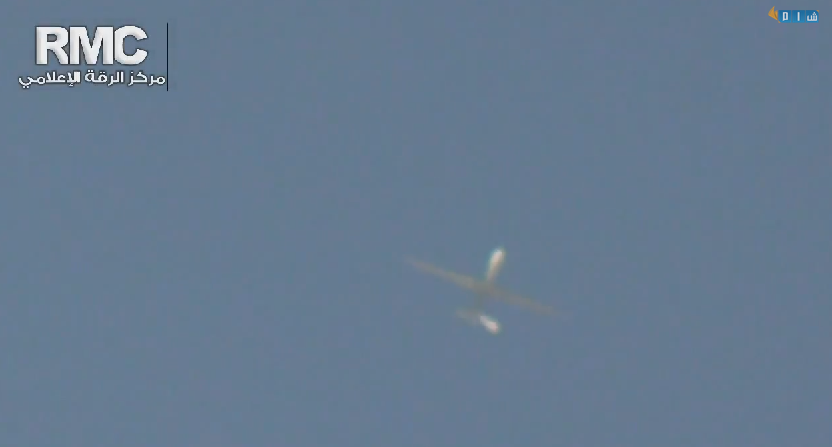
 Brown Moses
Brown Moses  ConflictReporter
ConflictReporter 







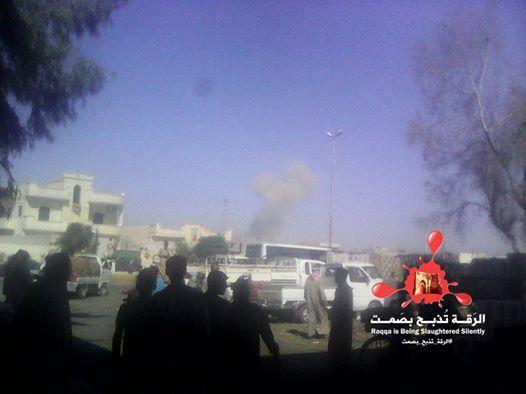
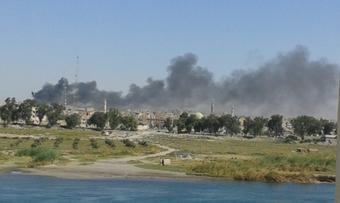
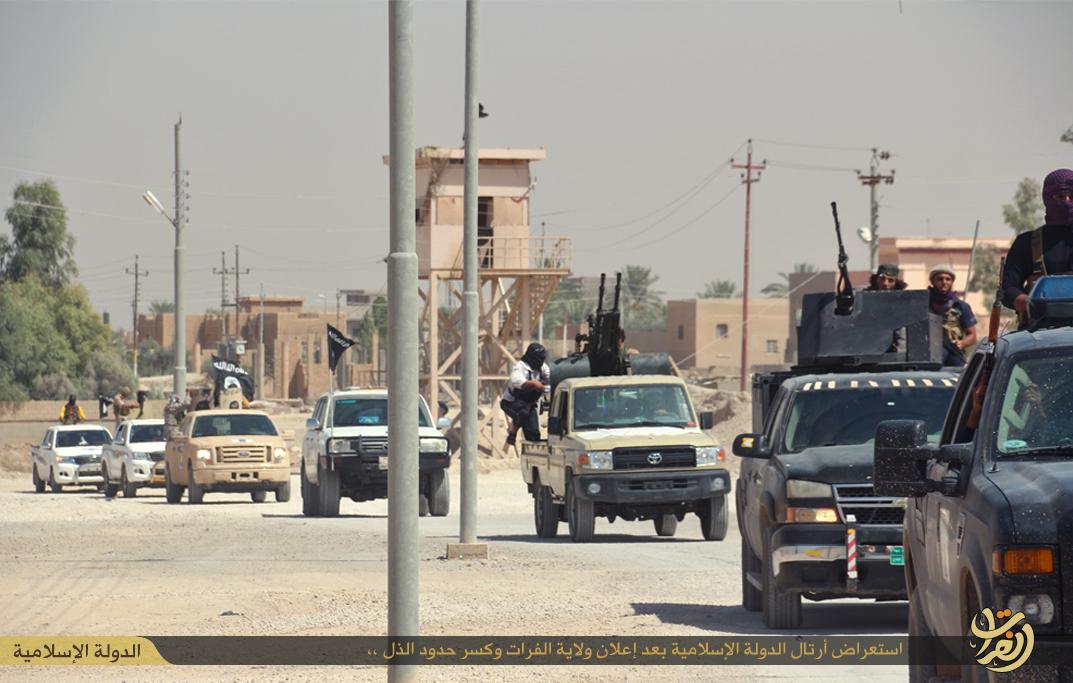

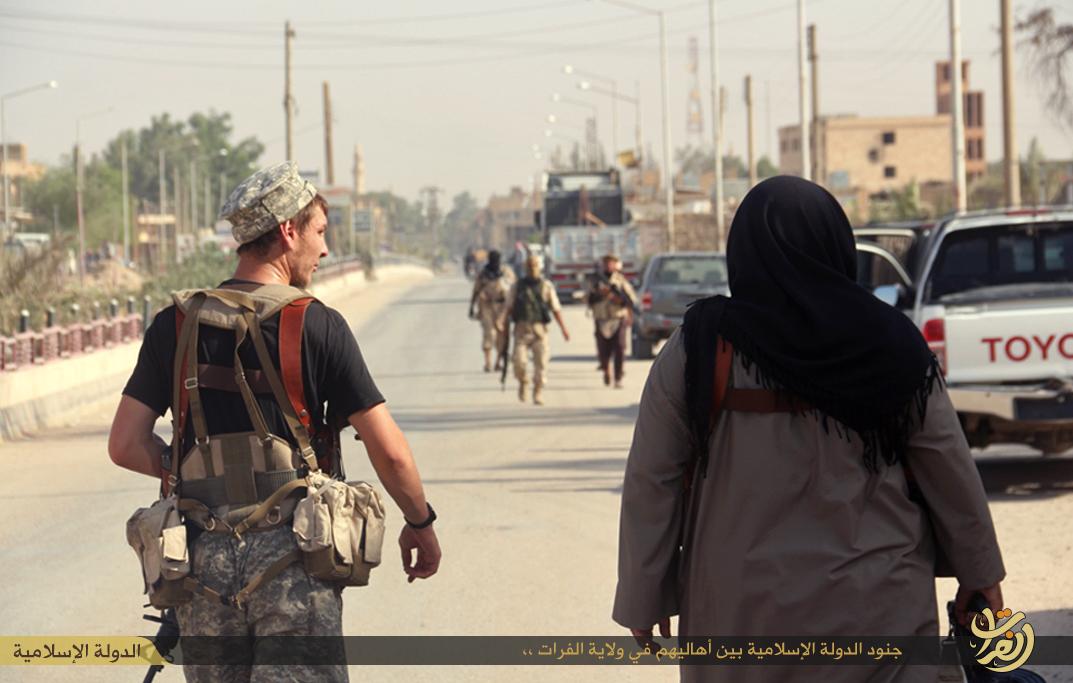
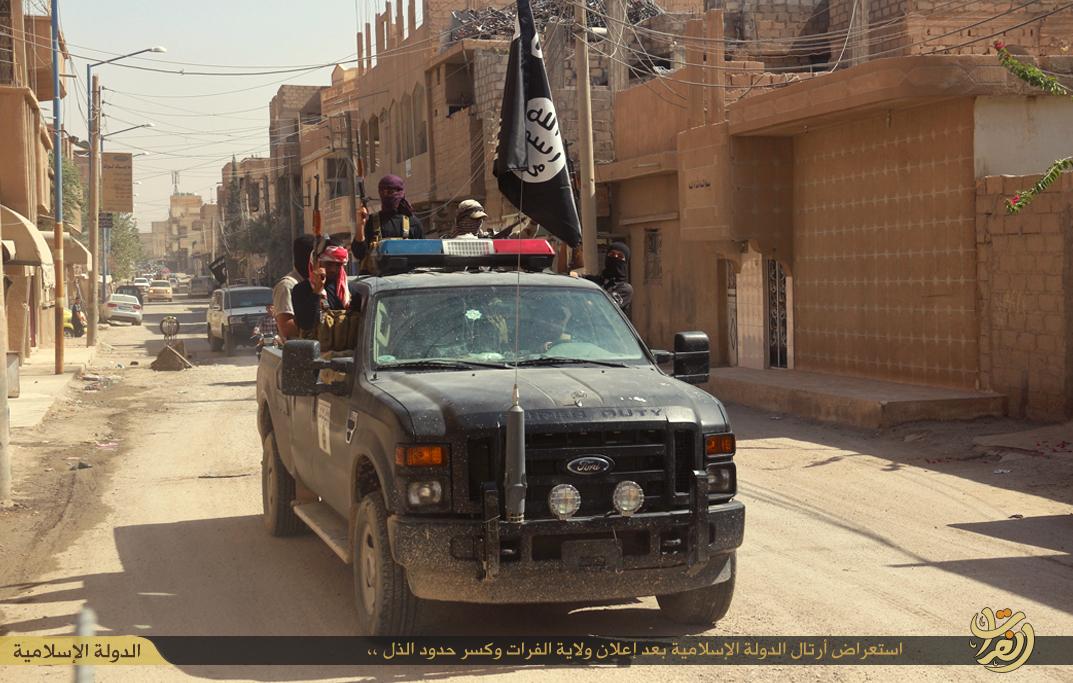
No comments:
Post a Comment